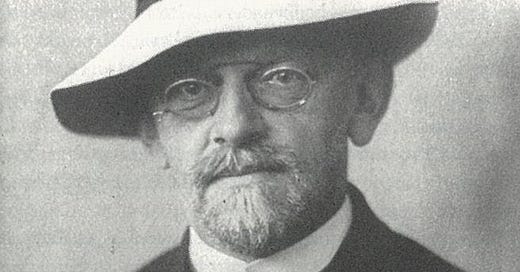It is easy enough to teach grad students how to think critically about other people’s work. I even provide them with a list of ways to criticize scholarship. By the second semester in grad school, they can see fatal flaws in the works of even our best scholars. Harder is the transition to producing their own work. Master’s theses tend to be fairly dreadful.
Perhaps this is inevitable and is the price of learning. But I wonder if the transition could be eased if more senior scholars would post lists of potential projects they think are worth doing along with relatively detailed instructions on how to do them. I think many of us both have more research ideas than we have bandwidth and we are as concerned with good research getting done as that we do it ourselves (this second assumption may be more problematic).
These could be fairly basic ideas like the following:
Extend the data from classic article X published in 1990 forward to 2020 and see if the results still hold.
Replicate this important work on US politics using data from country Y.
See if adding a new independent variable changes the conclusions in well-known study Z.
To give more concrete examples, consider recent extensions of Gilens’s Affluence and Influence using newly gathered data from Germany and the Netherlands. Or the many studies of promise keeping by political parties that came together in this AJPS piece.
These wouldn’t have to be just extensions. They could also be more original projects involving new dependent variables or methodologies.
(Edit on 2/23/21: It just occurred to me that scholars could simply post any number of pre-analysis plans (PAPs) that others could use. Not sure why this didn’t occur to me before.)
This isn’t unknown. I recall in grad school that Howard Rosenthal posed problems like these in his syllabus and I think my classmate Erik Voeten took him up on one of them. Diego Gambetta’s website has a set of potential dissertation topics as well, though they are posed at a fairly abstract level. I believe Gary King focuses a lot on replication in his methods courses at Harvard with hopes of getting these works published. And of course, most research papers and books already end with suggestions for further study.
While our best students might not pursue these paths and prefer to set off on their own, marginal students would surely find it easier and more productive to pursue a master’s-level project or even a dissertation chapter with this sort of guidance. One could even imagine a central repository of research ideas/plans where grad students and others could go when they are embarking on a thesis. They might note whether they wish to actively claim one (though without full property rights; others could work on it simultaneously).
Are there drawbacks to such a program? It is unlikely to lead to major breakthroughs, though most work does not lead to breakthroughs. And it is possible that the effect of trying and failing on one’s own is necessary to beget new geniuses, but that option would still be open to better or more ambitious students. I’m not sure that they would be distracted by this easier path.
These projects would have something in common with the 23 problems that David Hilbert posed for mathematicians in the early 20th century, though they would be much easier and would mostly solve themselves since the project descriptions would provide guidance on data and analysis. That’s why I call this program quasi-Hilbertian.
PS: At some point soon I will post some of my own ideas for projects.



